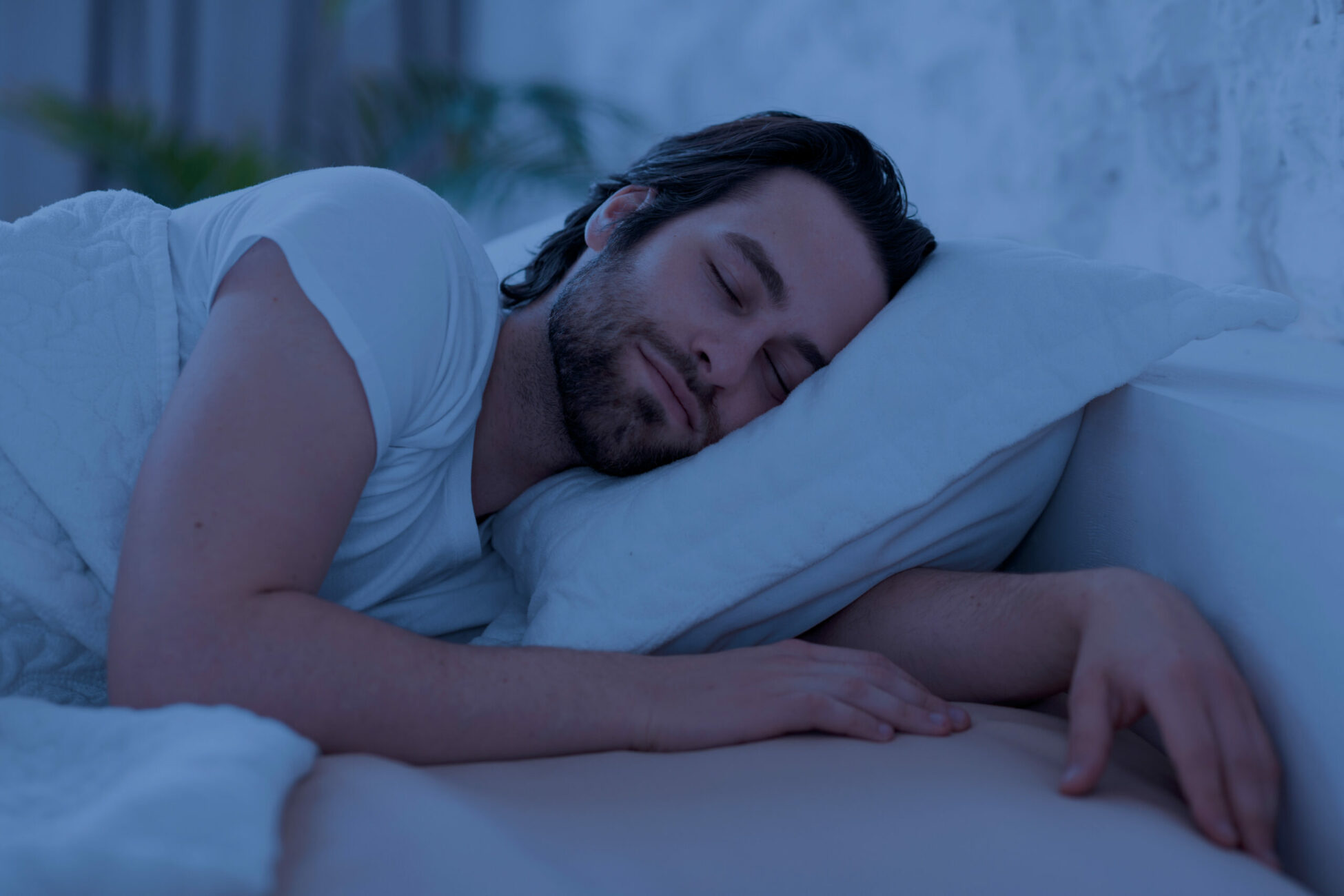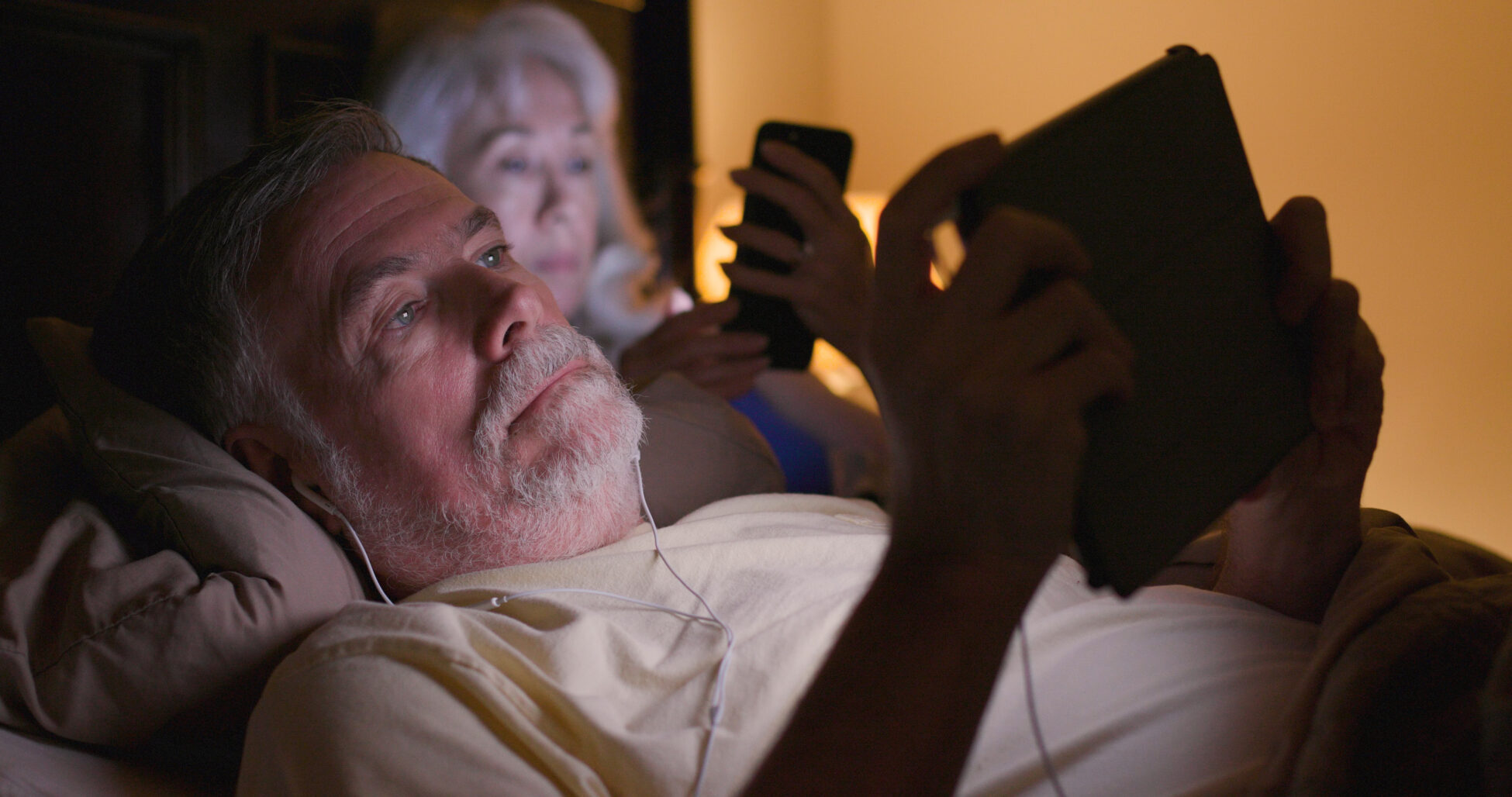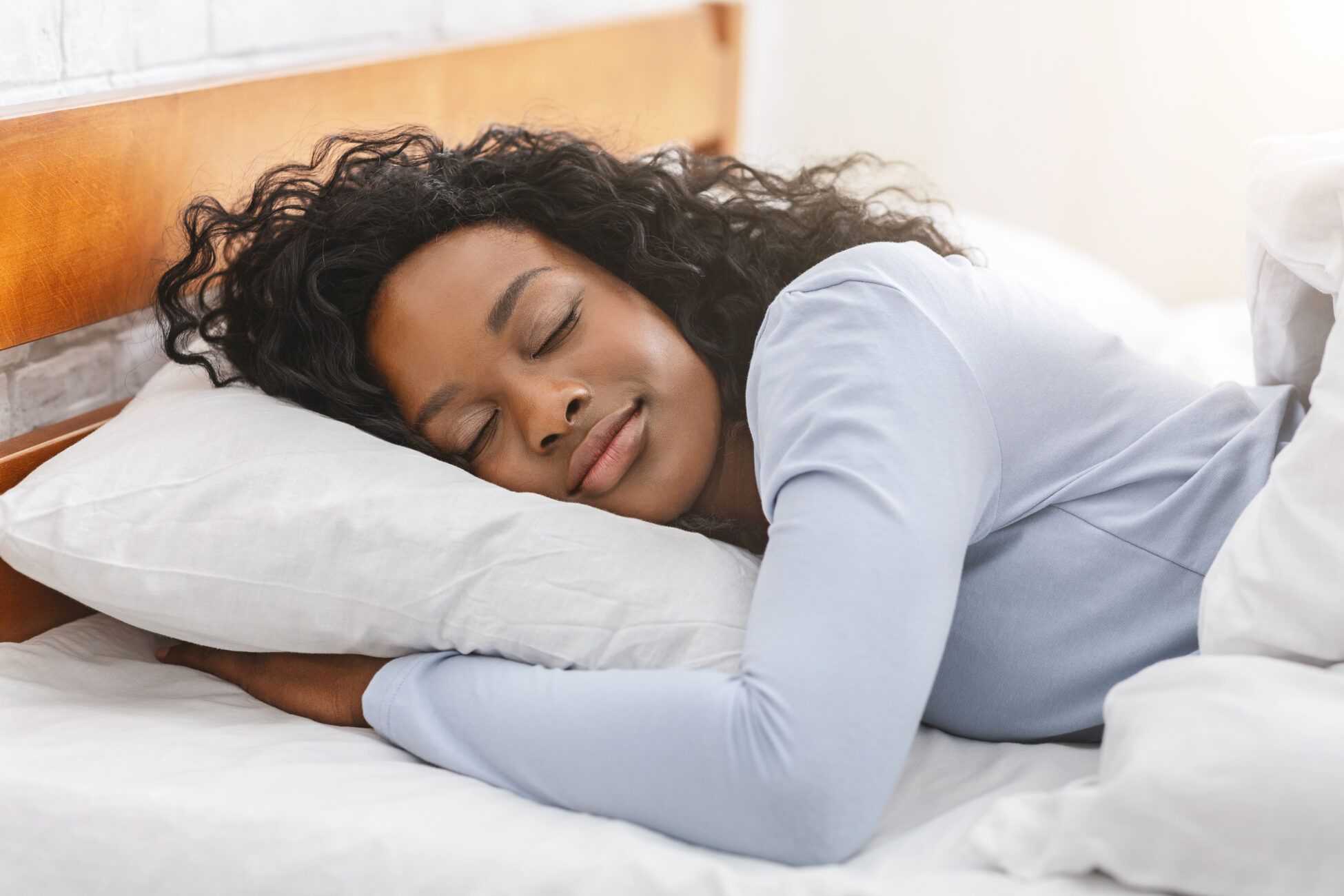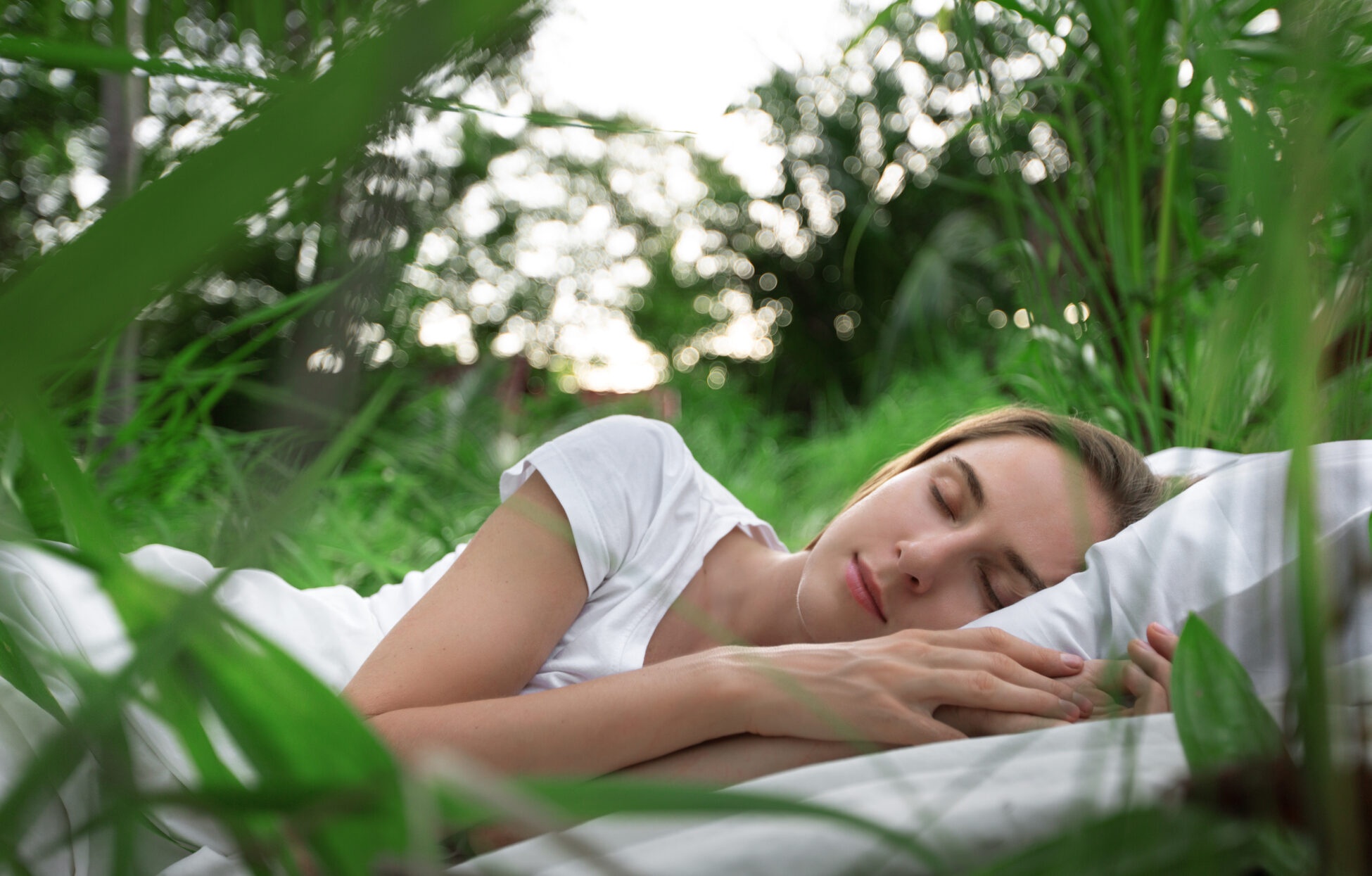What are the best ways to increase deep sleep? We have compiled a useful guide with 12 easy steps anyone can implement to ensure staying asleep during the night. From minimizing blue light to avoiding news-checking before bed. Every step leads to the same goal: increasing deep sleep, the key to overall better health.
Why is Deep Sleep Important?
Sleep deprivation is a silent epidemic, according to a recent study published in the journal JAMA Network Open. Reasons vary depending on various factors, but we can safely say that modern life stressors are one of them. Lack of deep sleep at night can lead to chronic sleep deprivation, which over time can affect your immune system and lead to a greater risk of heart disease, high blood pressure, stroke, Alzheimer’s, diabetes, and chronic diseases like cancer.
On the other hand, during sleep, your body is working to repair cells and restore energy. While all stages of sleep are essential to every process in the body, deep sleep offers specific physical and mental benefits.
Here are a simple ways to increase deep sleep and make the most of the body’s natural way of recovering.

12 Ways to increase Deep Sleep
1. Daily Dose of Sunlight
Exposure to sunlight is crucial to both your serotonin (the chemical that plays a key role in body functions such as mood, sleep, digestion, nausea, wound healing, bone health, blood clotting, and sexual desire) and melatonin (the hormone released by the pineal gland that has long been associated with control of the sleep cycle) levels.
It is best to increase these levels naturally with exposure to bright sunlight in the daytime (along with full spectrum fluorescent bulbs in the winter). And absolute complete darkness at night.
Facing the sun as soon as you get up helps you get to bed earlier, and if that isn’t possible, boost your melatonin levels using either 5-hydroxytryptophan (5-HTP) or a melatonin supplement. You can also try L-Theanine either with melatonin or alone.
2. Avoid Blue light at Night
Blue light has a dark side according to Harvard Medical School. It is likely that it can disturb your internal clock, or circadian rhythm. Eliminate man-made electric and electromagnetic fields (EMFs) in your bedroom that can not only disrupt your pineal gland’s production of melatonin and serotonin, but also cause mitochondrial damage and dysfunction, which is at the heart of virtually all chronic diseases.
You might have thought about it before, but go ahead and do it:
Turn off the wifi router for the night. Keep your cell phone as far away from your bedroom as possible. We recommend turning it off or putting it on airplane mode. Move alarm clocks and other electrical devices away from your bed. If these devices are important to your safety, try to keep them as far away from your bed as possible. Preferably at least 3 ft.

3. Avoid Eating or Drinking Right Before Bed
Avoid drinking fluids within two hours of going to bed, as this small change will reduce the midnight trips to the bathroom (or make them less frequent).
Also try avoiding eating three hours before bedtime, particularly grains and sugars. They can cause raised blood sugar, poor sleep, acid reflux, hypoglycemia, excess congestion, and other problems that might interfere with amount of deep sleep.
4. Be Smart with Alcohol and Caffeine
Although alcohol will make you drowsy, the effect is only temporary and you will probably find yourself waking up several hours later, unable to fall back to sleep – a phenomenon often associated with substance-induced disruptions in sleep patterns. Alcohol will also keep you from entering the deeper stages of sleep, where your body does most of its healing. Also, time your caffeine: Research indicates that in some people caffeine is not efficiently metabolized, leaving them feeling its effects for a long amount of time after consumption.
The levels of caffeine in your cup can vary widely according to an experiment at the University of Florida, and affect you more than you expected. This applies to caffeinated sodas too, as well as many medications and supplements containing caffeine (for example, diet pills).
5. Don’t Exercise Right Before Bed
This can be tricky because we need regular exercise to be able to sleep well, but it can also affect our body temperature and our ability to sleep deeply. The Harvard Medical School came up with the answer: it’s the vigorous exercise that causes the issue. Exercise regularly, but not within three hours of bedtime. Studies show exercising early in the morning is one of the most effective ways to increase deep sleep, if you can manage it.
6. Go to Bed Early
Get to bed as early as possible, ideally between 9 and 10 p.m. Your body, particularly your adrenal system, does a majority of its recharging between 11 p.m. and 1 a.m. In addition, your gallbladder gets rid of toxins during this same period. Maintain a consistent schedule: go to bed and wake up at the same time each day, even on weekends. This will help your body get into a sleep rhythm and make it easier to fall asleep faster and get up in the morning. See these tips from the Sleep Foundation on how to train your body to go to sleep early.

7. Create a Bedtime Routine
Creating a bedtime routine could include anything from meditation to controlled breathing exercises – the key is to find something that makes you feel relaxed, then repeat it each night to help you release tension. A time-tested ritual is also the hot bath or shower before bed: when your body temperature is raised in the late evening, it will fall at bedtime, facilitating slumber. The temperature drop from getting out of the bath signals your body that it’s time for bed. It will also help if you finish your shower with a cold rinse, which has multiple health benefits.
8. Reserve Your Bed for Bed Activities Only
If you are used to watching movies, checking your social media accounts, or (even worse) doing work in bed, you may find it harder to relax and drift off to sleep. Treating the bedroom like any other room of the house could be ruining your ability to get a good night’s sleep, so make sure you reserve your bed for sleep habits and intimacy only.
9. Create the Right Sleep Environment
- Sleep in complete darkness
Sleep in complete darkness, or as close to it as it’s safely possible. Even the tiniest bit of light in the room, such as a decorative nightlight, can disrupt your internal clock. It can also affect production of melatonin and serotonin, thereby messing with your sleep circles, and also body functions. If it’s not easy to block out every stream of light using curtains or blinds, eye masks can be helpful.
- Sleep in a cold room
Keep the temperature in your bedroom no higher than 68° F / 20° C. Go lower if you can handle it. According to an article written by Dr. Christopher Winter, medical director at Charlottesville Neurology & Sleep Medicine, and published by HuffPost, our bedroom temperatures can make a big difference when it comes to getting a good night of sleep. Additional studies show the optimal room temperature for sleep is between 60° and 68° F / 15°-20° C. Adjusting your thermostat lower or higher can lead to restless hours of sleep.
- Adopt a neutral sleeping position
If you’re a side or stomach sleeper and find yourself either frequently tossing and turning during the night or waking up with aches and pains, your sleeping position may be a primary culprit.
- Wear socks to bed
According to Cleveland Clinic, keeping your feet warm will help the rest of the body relax and stay asleep. As an alternative, you could place a hot water bottle near your feet at night.
10. Protect Your Mental Health
Put your work away at least one hour before bed (preferably two hours or more), avoid the late evening communication with toxic friends & family, and choose another time to make your to-do list for tomorrow. Most importantly, to protect your mental health and improve your sleep circles by creating a calm environment and routine, avoid watching TV right before bed. It’s too stimulating to the brain, preventing you from falling asleep quickly, and disrupts your pineal gland function.
If you do watch TV, be sure to use blue light-blocking glasses after sunset as this will help maximize melatonin production. Finally: definitely, absolutely, avoid checking the news before bedtime!
11. Involve Nature in Your Strategy
The sound of white noise or nature sounds, such as the ocean, rain, and forest, can be particularly soothing for sleep. Nature’s sounds/noise playlists on Spotify can be your best ally to this.

12. Sleep Cell
This FrequenCell has been developed to help you fall asleep and stay asleep through the night. Complement its use with our ways to increase deep sleep above, let your body recover through the restorative deep sleep stage, and start your day well-rested and ready to make the most of it.




